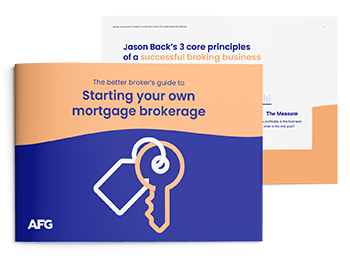Newly appointed small business and family enterprise ombudsman Kate Carnell hopes to put a blow-out in payment times to small business on the agenda. She speaks exclusively to us about her role and how it will benefit SMEs.
The independent office of small business and family enterprise ombudsman provides advice to the government and assistance to SMEs with less than 100 employees. Inaugural ombudsman Kate Carnell was appointed in March.
Ms Carnell ran a pharmacy in Canberra for 15 years before entering politics and heading a Liberal minority government in the ACT from 1995-2000. She has served as CEO of Beyond Blue and led the Australian Chamber of Commerce and Industry for two years.
What is the difference between the role of ombudsman and that of the small business commissioner, which it replaced?
The major difference is that this role is independent. This role was set up under legislation, which created an independent entity with significantly more powers than the old commissioner’s role had. So I can instigate inquiries and we can, under certain circumstances, require people to turn up and to give us information – the same sort of powers in some ways as Royal Commissions have. And my appointment is by the Governor-General, so I don’t report to government.
Has small business always been part of your life?
Absolutely. Dad ran his own business. He was an accountant. He and his brother and brother-in-law set up a residential building company, which started the year I was born. My brother also runs a building company in Brisbane. My son bought his own restaurant about 12 months ago. And my daughter’s a barrister – so self-employed. I think being self-employed is very much part of our genetics.
What do you think are the toughest things about running a business?
The thing about small business, I suppose, is that your house is riding on it. And there’s nobody to blame. It’s pretty all-encompassing. I always tell people who think they’re going into small business so that they can have a better work/life balance that possibly they’re choosing the wrong approach. It’s certainly true it can be flexible, but it certainly won’t mean more leisure time.
If you could go back to before you started your first business, what advice would you give yourself?
I would say: ‘It’s really important to have thinking time.’ I did what most small business owners do. I just worked extraordinarily long hours and did everything I could possibly do to help the business – what turned out to be a few businesses – prosper and grow. But I probably didn’t spend enough time thinking strategically. And I suppose – like every single businessperson – I would say: ‘It is really important to keep some focus, some balance between your personal life and your business life.’ You only get one shot. And being in the situation I was, where I spent a huge amount of time away from my family, is something I regret. You can’t get that back.
You’ve been in the role a short time but how do you see it functioning?
The role of the office is probably 70 per cent advocacy and 30 per cent assistance. So the majority of the job isn’t just complaints, but to ensure that small business and family enterprises are heard inside government and also that the marketplace is as fair as possible for small businesses.
You’ve said dispute resolution is going to be a big part of that 30 percent. How will it work?
What we’ll be trying to get across is `Please come to us early’. It’s really hard solving things that are already in the court system. So come to us early and we’ll give advice on where is the best place to get your problem solved – and help you get there. We won’t be just duck-shoving. We’ll be helping people get to where is most appropriate. It might be ACCC (Australian Competition and Consumer Commission). It might be a Commonwealth ombudsman. It might be the telecommunications ombudsman. There’s a chunk of these entities around, but it’s really hard for small business to determine where to go. And for those cases that don’t fit anywhere, or where people haven’t achieved the outcome that they want, we’ll take them onboard. Depending on the issue, I’ll write to the CEO if the other party is a big business, or to the head of department if it’s a government department, outlining the issues and seeking information.
It might not occur to many small businesses to approach you for help?
I think that’s the problem. We need small business to understand that we are here to help and support them. The reason the legislation was passed – with support from all sides of politics – was the understanding that small-to-medium businesses often don’t know how to manage the system. Our job will be to help them.
It can be a dispute with a bigger company. It can be an issue with the bank. It can be an issue with the ATO (Australian Tax Office). It’s amazing how often if you elevate the problem to senior management or CEOs that things can be solved. Often problems are really about middle managers following the rules without a solid dash of common sense.
I’ll give you an example. Yesterday I spoke to a person who lost a lot of business as a result of the RSRT (Road Safety Remuneration Tribunal)’s payments determination and was struggling with their BAS payments. She said: ‘Look, I’ve rung the ATO and I’ve told them I want to enter into a payment plan because we’re really struggling, but we think we’ll get out of it in a couple of months.’ The ATO had been polite but not terribly helpful. So I rang the ATO at a more senior level, explained the situation and they said, `Of course. We’ll make sure our guys are briefed that there’s an issue and to help people with payment plans.”
The ATO doesn’t want to send people broke when they really want to pay. Even a letter from me to CEOs of companies about issues that small businesses might be experiencing – fairly obviously they have to have a real case. But it’s amazing how often problems are solved that senior management or CEOs had no idea was happening.
Is it the case that the Government needs to do more, or does it need to communicate what it already does better?
Oh, absolutely the second one. I’m amazed at the number of things that are available through Government, both State and Federal. There was one recently where there are grants for small business to address internet security. I didn’t know about that. [https://www.business.gov.au/assistance/cyber-security-small-business-programme]. There are surprising things out there, but the challenge is to get the information across to the people who need it. We’re also currently conducting a consultation of small businesses asking them what’s on their mind, what are the issues.
So, what are the issues?
Look – some of the things are the things you would expect – payroll tax, red tape issues like BAS. But also things like payment times. There seems to be a pretty systemic problem with bigger businesses blowing out payment times to smaller businesses. And these are issues that really cause problems for small business. You can’t say to your staff, ‘Sorry we’ll pay you in 90 days’. And if you’re a café owner, you can’t say to the person who delivers the bread and milk, ‘We’ll pay you in 90 days’. You don’t need a big blowout to cause a large problem for a small business that’s really got nowhere to go really.
You have consulted with SMEs to formulate an ‘advocacy agenda’. What’s top of the list?
I’d hope we’d be announcing our first (self-generated) inquiry soon and I’d think it’s probably going to be payment times. But the other thing that’s important is that one of the functions of this office is to provide small business input (to the Federal Government) on new regulations and new legislation (before it is enacted). My experience of government is that government doesn’t mean to do stuff that gets in the way of small business. Say, the hiring legislation – some things were done in this piece of legislation that has really impacted on small business. Government didn’t mean to do it. It just ended up them not understanding the difference between big business and small business and the way they operate. But trying to undo the problem is really difficult. We’ll get there. But if we’d picked it up (while the legislation was in draft stage) we could have solved the problem before it happened. That’s the plan. And that’s the role (of ombudsman).
Visit the small business and family business ombudsman’s website at https://asbfeo.gov.au/
Ombudsman Kate Carnell encourages all businesses to sign up to the office’s newsletter to stay abreast of developments that impact them









